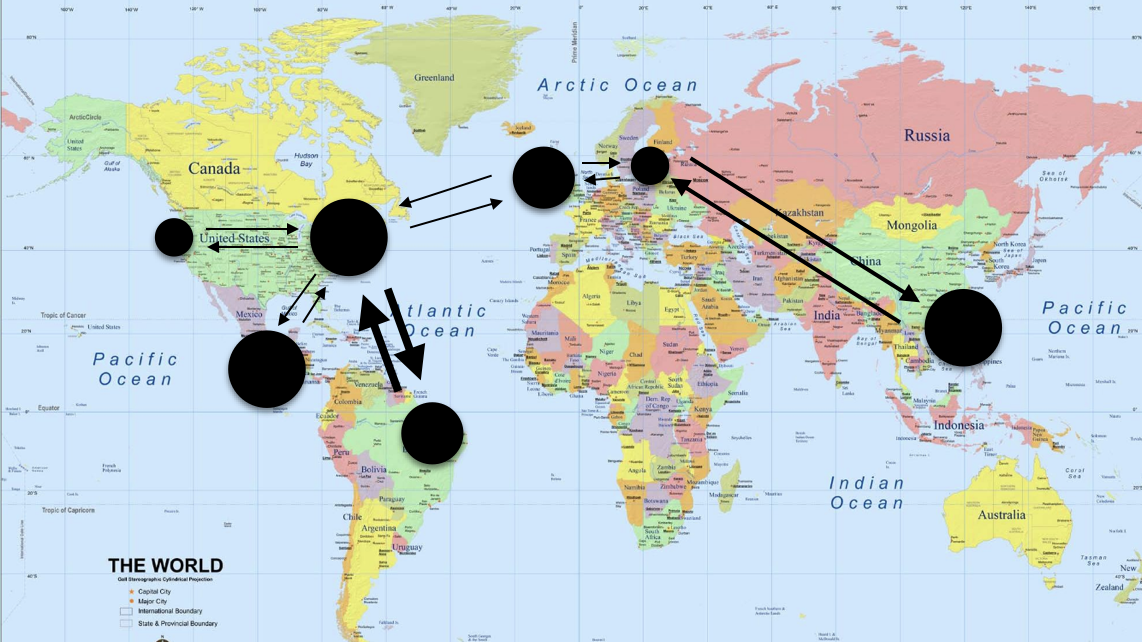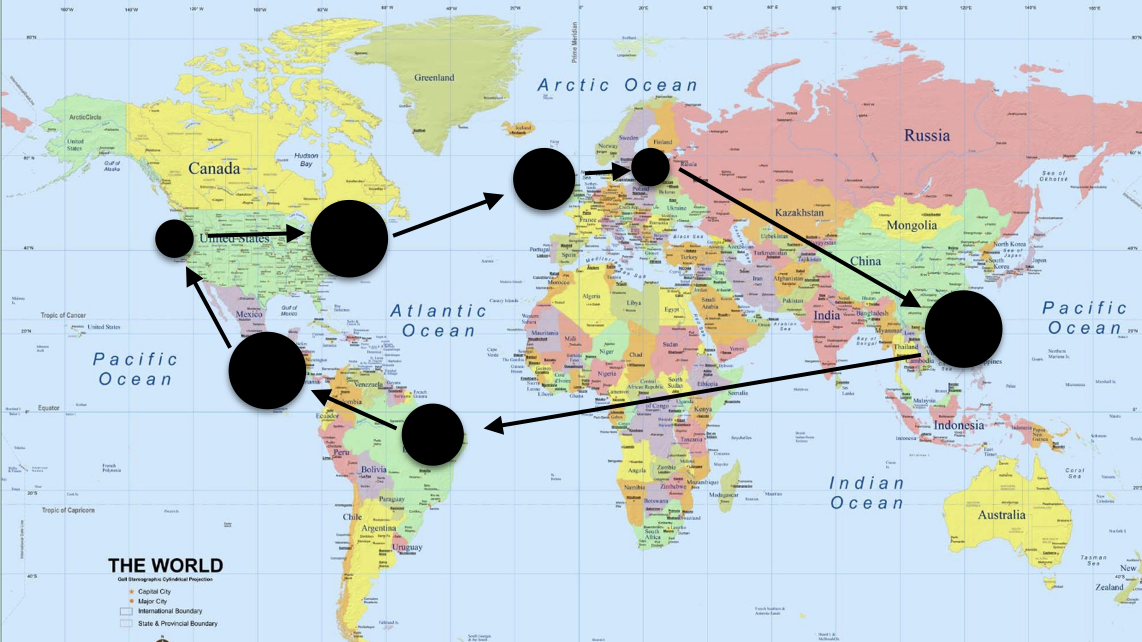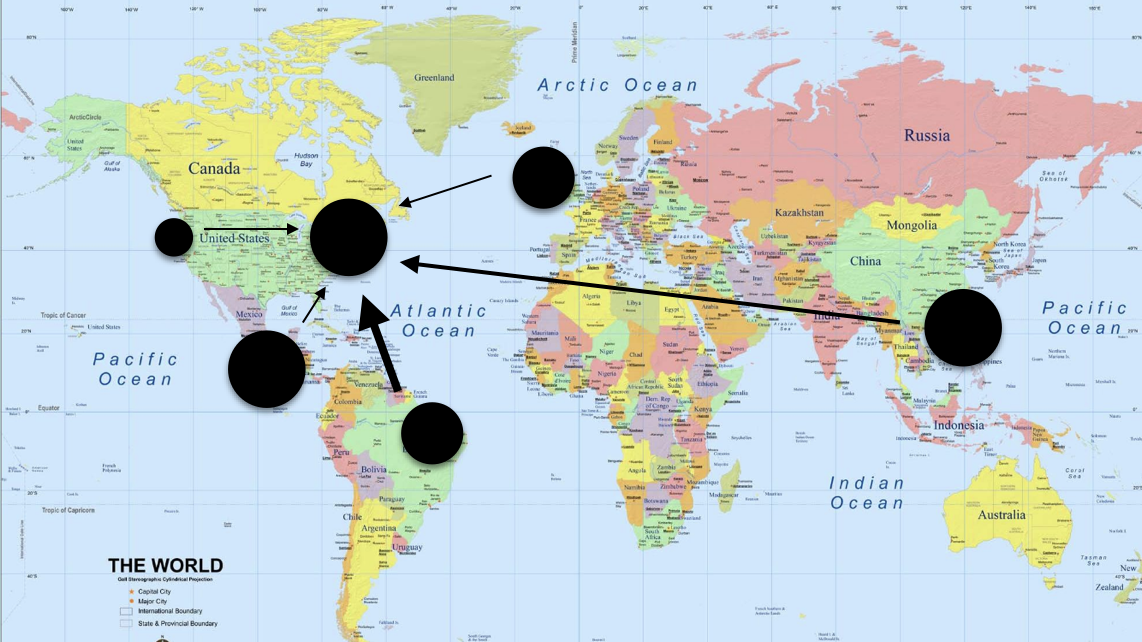Balance equations
Outline
Topics
- Global balance (synonym: invariance)
- Detailed balance (synonym: time-reversibility)
Rationale
We need formulas to help us prove that MH is \(\pi\)-invariant (and hence combined with irreducibility, admits a LLN).
Example
We continue our eccentric tourists example…
Question: which travelling scheme(s) are \(\pi\)-invariant?
Intuition: \(\pi\)-invariance in this context just means the fraction of tourists in each city will stay constant over time.
- Pairs of cities, where each pair of cities is assigned a fixed number of planes going back and forth between the two cities (see figure, planes always full).
- A tour where a fixed number of planes, equal to the number of cities, go around the world on a common route.
- A central “hub”, where all flights land at the hub (see figure, again, planes always full).
a:  b:
b:  c:
c: 
Global balance
Question: combine
- the definition of \(\pi\)-invariance, with
- the formula we derived for the marginals of a Markov chain, i.e., \[\mu_2(x') = \sum_x \mu_1(x) K(x' | x),\]
to get an equation characterizing \(\pi\)-invariance in terms of \(K\).
Detailed balance
Question: write mathematically “pairs of cities, where each pair of cities is assigned a fixed number of planes going back and forth between the two cities (planes always full).”
Relationship between detailed and global balance
Question: what is the relationship between local and global balance? Does one imply the other?